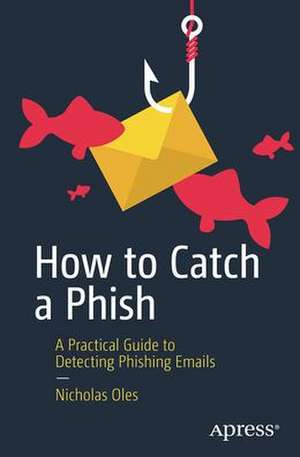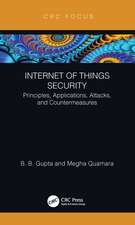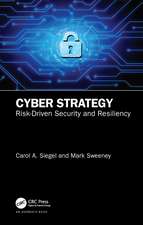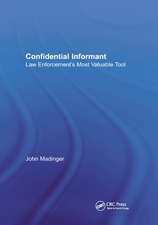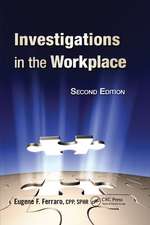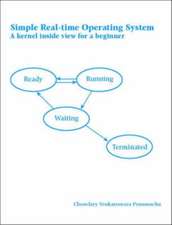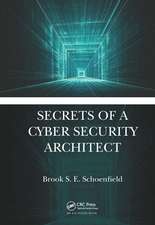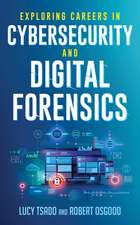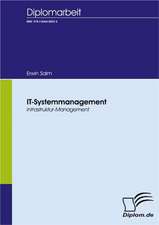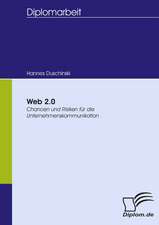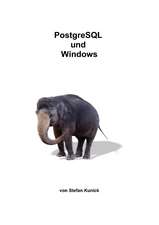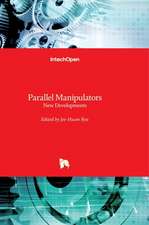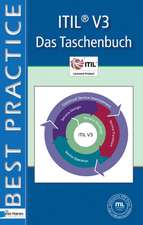How to Catch a Phish: A Practical Guide to Detecting Phishing Emails
Autor Nicholas Olesen Limba Engleză Paperback – 21 iun 2023
Every organization and individual with an email account is susceptible to deceptive emails sent by attackers with nefarious intentions. This activity, known as phishing, involves an attacker attempting to lure individuals into providing sensitive information or performing a predetermined action. Attacks vary in sophistication, but the core skills and process to detect, analyze, and respond to a suspicious message does not change.
Attackers have preyed on victims with convincing and not-so-convincing phishing emails to gain initial footholds into networks around the world for over 30 years. This attack method has been rapidly growing in popularity and continues to be the number one method that organizations and individuals struggle to defend against. Regardless of what any vendor or organization will tell you, no infallible tool exists to eliminate this threat completely.
This book teaches you how to analyze suspicious messages using free tools and resources. You will understand the basics of email, tactics used by attackers, and a repeatable process to systematically analyze messages and respond to suspicious activity.
You Will Learn How to:
- Safely save email messages as attachments for analysis
- Identify what information is in an email header
- Review header information and extract key indicators or patterns used for detection
- Identify signs of a suspicious or malicious email message
- Detect the tactics that attackers use in phishing emails
- Safely examine email links and attachments
- Use a variety of free and simple tools to analyze email messages
Cybersecurity professionals and interested computer security enthusiasts currently holding or aspiring to obtain positions such as IT Security Analyst, Network Defender, Security Operations Center Analyst, or Help Desk Technician. Readers should have a general understanding of how email works and some ways that attackers use this platform for initial access.
Preț: 130.36 lei
Preț vechi: 162.95 lei
-20% Nou
Puncte Express: 196
Preț estimativ în valută:
24.94€ • 26.04$ • 20.64£
24.94€ • 26.04$ • 20.64£
Carte disponibilă
Livrare economică 15-29 martie
Preluare comenzi: 021 569.72.76
Specificații
ISBN-13: 9781484293607
ISBN-10: 1484293606
Pagini: 147
Ilustrații: XI, 147 p. 91 illus., 88 illus. in color.
Dimensiuni: 155 x 235 mm
Greutate: 0.23 kg
Ediția:First Edition
Editura: Apress
Colecția Apress
Locul publicării:Berkeley, CA, United States
ISBN-10: 1484293606
Pagini: 147
Ilustrații: XI, 147 p. 91 illus., 88 illus. in color.
Dimensiuni: 155 x 235 mm
Greutate: 0.23 kg
Ediția:First Edition
Editura: Apress
Colecția Apress
Locul publicării:Berkeley, CA, United States
Cuprins
Chapter 1. How Email Works.- Chapter 2. Phishing Tactics and Techniques.- Chapter 3. PICERL Process explained.- Chapter 4. Analyzing Message Content.- Chapter 5. Links.- Chapter 6. Attachments.- Chapter 7. Log Searching and Response.- Chapter 8. Remediation and Lessons Learned.
Notă biografică
Nick Oles is a cybersecurity expert with over 15 years of operational experience in military, industry, and academic environments. He has worked on incident response and threat hunting teams and consulted with Fortune 150 organizations, small businesses, and US Department of Defense entities. Nick has served his country for over a decade in the cyber and special operations communities, earning multiple military accolades, completing worldwide deployments, and serving in joint special operations environments. He has advised award-winning academic centers on cyber-program development and management, as well as created and taught academic and certification courses on a variety of cybersecurity topics. Nick has detected, analyzed, and responded to thousands ofsecurity incidents over his career. He continues to actively contribute to the cybersecurity community and teach students at all skill levels while still serving his country.
Textul de pe ultima copertă
Learn how to detect, analyze, and respond to phishing emails, the top infection vector used by cybercriminals. The repeatable process described in this book has been cultivated and tested in real-life incidents and validated across multiple threat landscapes and environments.
Every organization and individual with an email account is susceptible to deceptive emails sent by attackers with nefarious intentions. This activity, known as phishing, involves an attacker attempting to lure individuals into providing sensitive information or performing a predetermined action. Attacks vary in sophistication, but the core skills and process to detect, analyze, and respond to a suspicious message does not change.
Attackers have preyed on victims with convincing and not-so-convincing phishing emails to gain initial footholds into networks around the world for over 30 years. This attack method has been rapidly growing in popularity and continues to be the number one method that organizations and individuals struggle to defend against. Regardless of what any vendor or organization will tell you, no infallible tool exists to eliminate this threat completely.
This book teaches you how to analyze suspicious messages using free tools and resources. You will understand the basics of email, tactics used by attackers, and a repeatable process to systematically analyze messages and respond to suspicious activity.
Attackers have preyed on victims with convincing and not-so-convincing phishing emails to gain initial footholds into networks around the world for over 30 years. This attack method has been rapidly growing in popularity and continues to be the number one method that organizations and individuals struggle to defend against. Regardless of what any vendor or organization will tell you, no infallible tool exists to eliminate this threat completely.
This book teaches you how to analyze suspicious messages using free tools and resources. You will understand the basics of email, tactics used by attackers, and a repeatable process to systematically analyze messages and respond to suspicious activity.
You Will Learn How to:
- Safely save email messages as attachments for analysis
- Identify what information is in an email header
- Review header information and extract key indicators or patterns used for detection
- Identify signs of a suspicious or malicious email message
- Detect the tactics that attackers use in phishing emails
- Safely examine email links and attachments
- Use a variety of free and simple tools to analyze email messages
Caracteristici
Provides a step-by-step process to determine the legitimacy or risk associated with a particular email message Helps you identify suspicious emails and defend your networks Shows you how to analyze message content and identify key phishing message indicators
